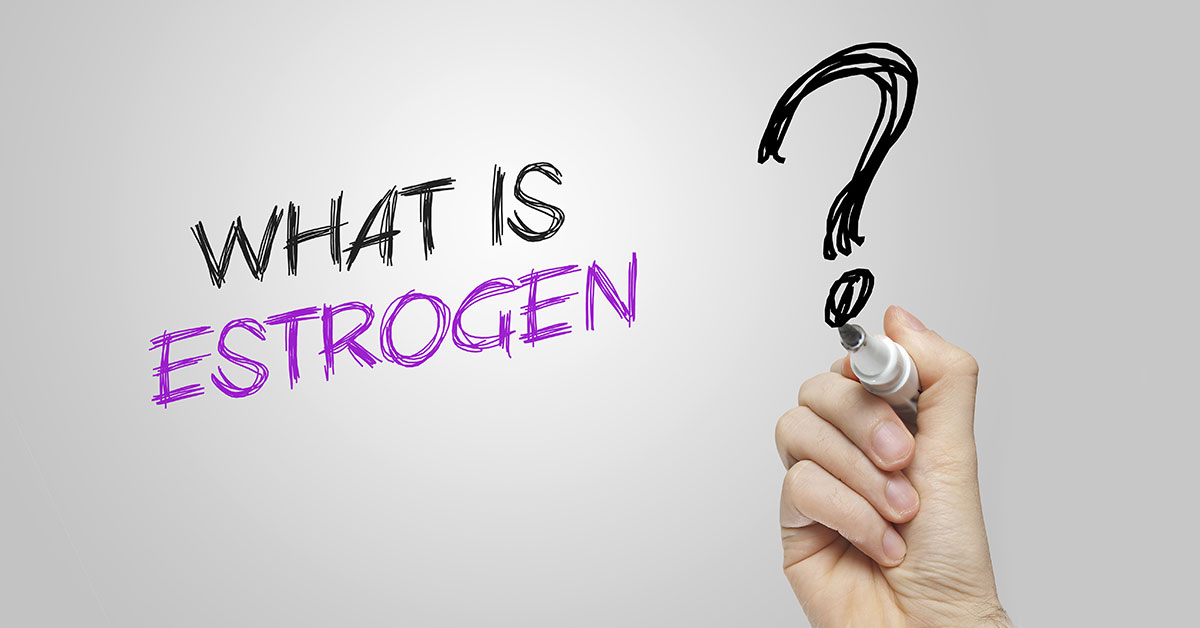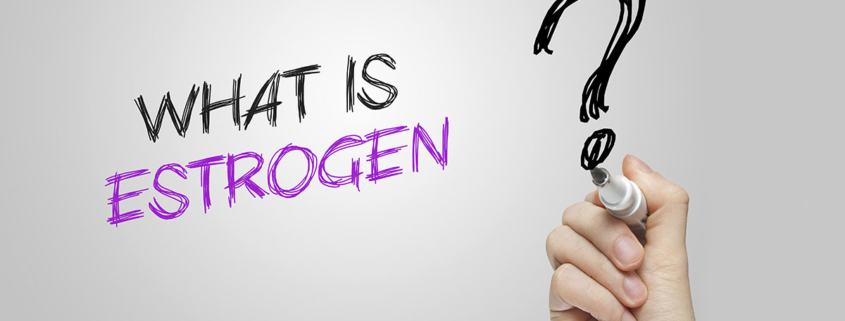THE ESTROGEN CONNECTION – Estrogen is What, Exactly?

First, a primer: to some, it’s some “woman’ thing. Some do think of it as a hormone. But surprise, there is actually no single hormone called “estrogen”. Try plurals, here; estrogens are a class of hormones. There are three different forms of estrogens in the body: estradiol, estriol and estrone. (Close your eyes and try repeating.)
Although they are all pretty similar in function, they vary in potency. Estradiol is the most common type found in non-pregnant women of childbearing age, and its main function is assisting with the monthly egg release from the ovaries. Estriol occurs in abundance at pregnancy. Estrone, is the form found upon post-menopause.
It’s Everywhere, Doing Everything.
Estrogen, (as we’ll refer to it here for the sake of simplicity) isn’t just about the basics mentioned above. Consider this:
- Your daily life affects your estrogen levels and needs-vigorous exercise or stressful situations make you use estrogen faster. When you sleep, when you’re ill, it all has an impact on your estrogen levels.
- Estrogen can affect your sun sensitivity. (High SPF and no tanning beds, please.)
- Estrogen has both a direct and indirect impact on the cardiovascular system helping stop the buildup of plaque in your arteries, for example. (Be still, my heart.)
- Estrogen plays a role in brain function helping protect nerves from damage and possibly stimulate nerve growth. It can also delay memory loss. (What was that I just said?)
- Even your eyes need estrogen, as low levels can cause dry eyes, blurriness and even a change in vision. (And you thought maybe it was just from a killer hangover.)
- Estrogen has a big effect on your skin, improving collagen content and quality. (Wrinkle, wrinkle, little star.)
- It even helps prevent bone loss. (Give me a break.)
Periods? Pregnancy? Post menopause? Just an itsy-bitsy part of the picture.
Get the Whole Picture
The fact is, people don’t know what they should about the hormones called estrogen. And like all hormones, they’re crucial to how your entire body operates. Because hormones send specific signals throughout your bloodstream, if the messages they’re carrying for your body to operate the way it should, a lot could happen. Or not. The most important thing to know about hormones, is that there is a safe and effective way to balance them. In the Denver area, Dr. Stephen A. Goldstein MD, F.A.C.S. at Denver Hormone Health is the expert in Hormone Replacement Therapy. Before anything, he will discuss estrogen in a language that’s easy to understand, and answer any and all questions you have. It is important to understand that hormone levels differ between individuals; what is normal for one person is not necessarily normal for another. That’s why testing for your individual levels is critical. The tests are simple, but the results are completely telling. Once he is able to see your hormone levels, he creates a tailored plan just for you. Because he’s there for you, wanting you to feel your best.
Unlike estrogen, he’s hard to replace.



